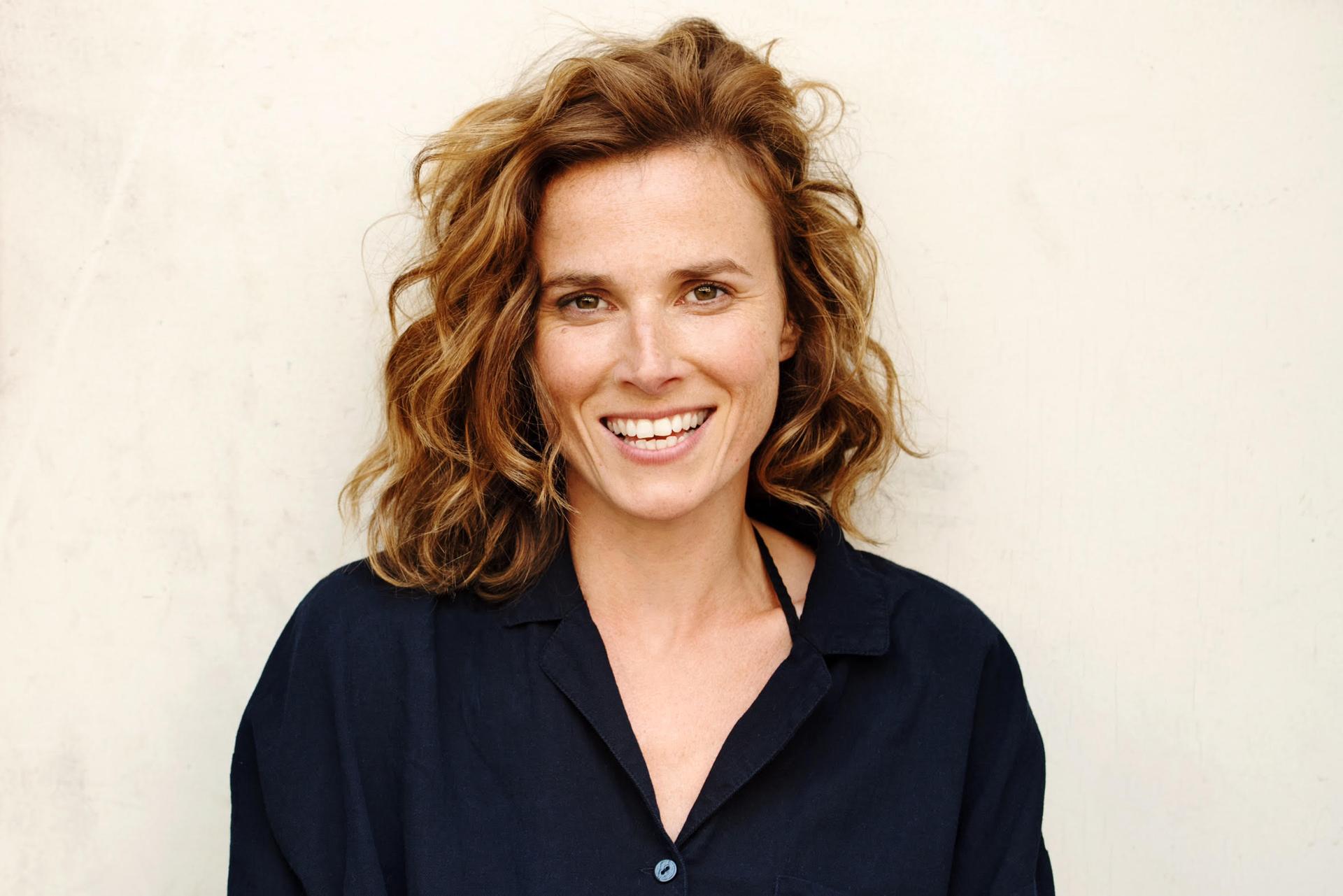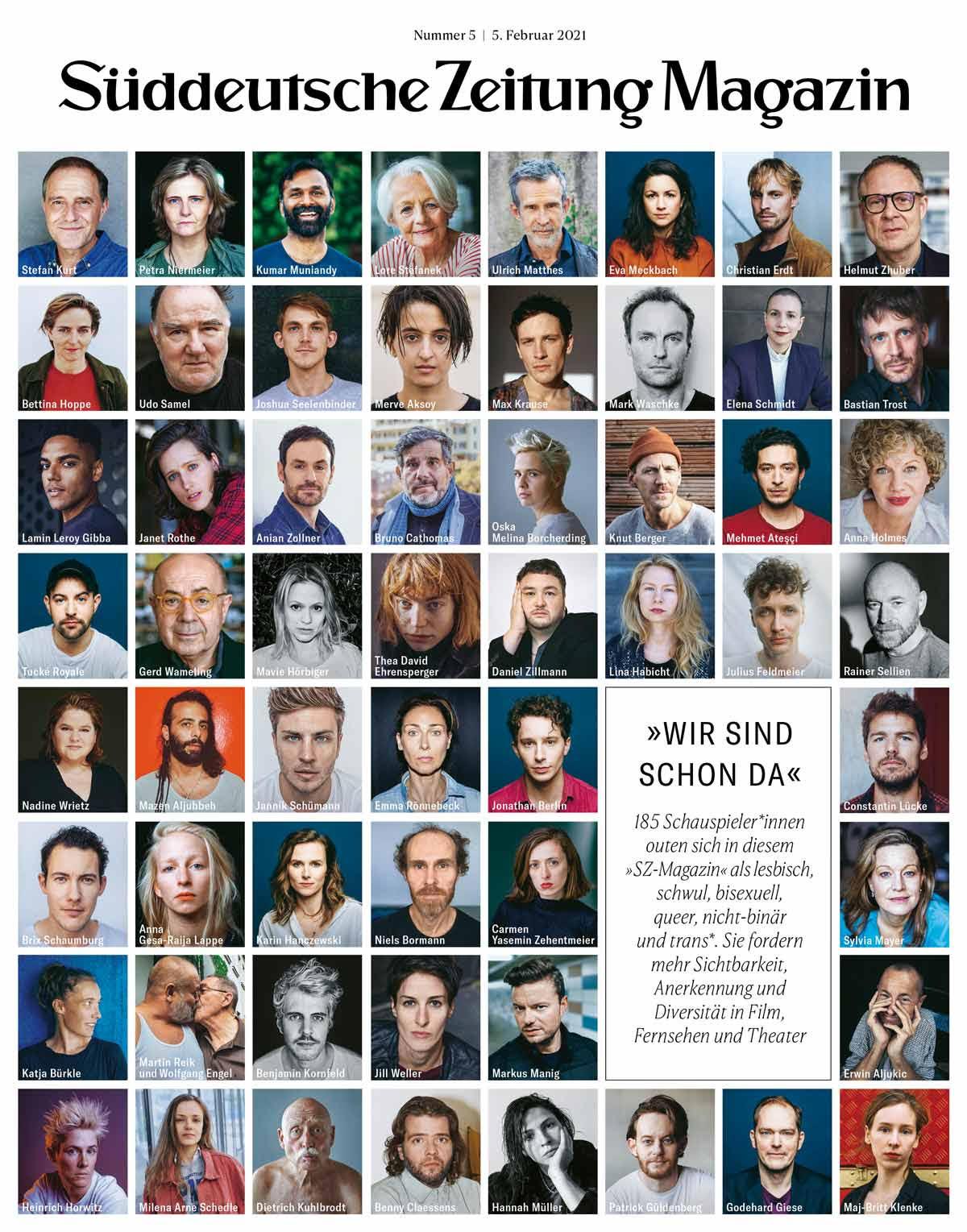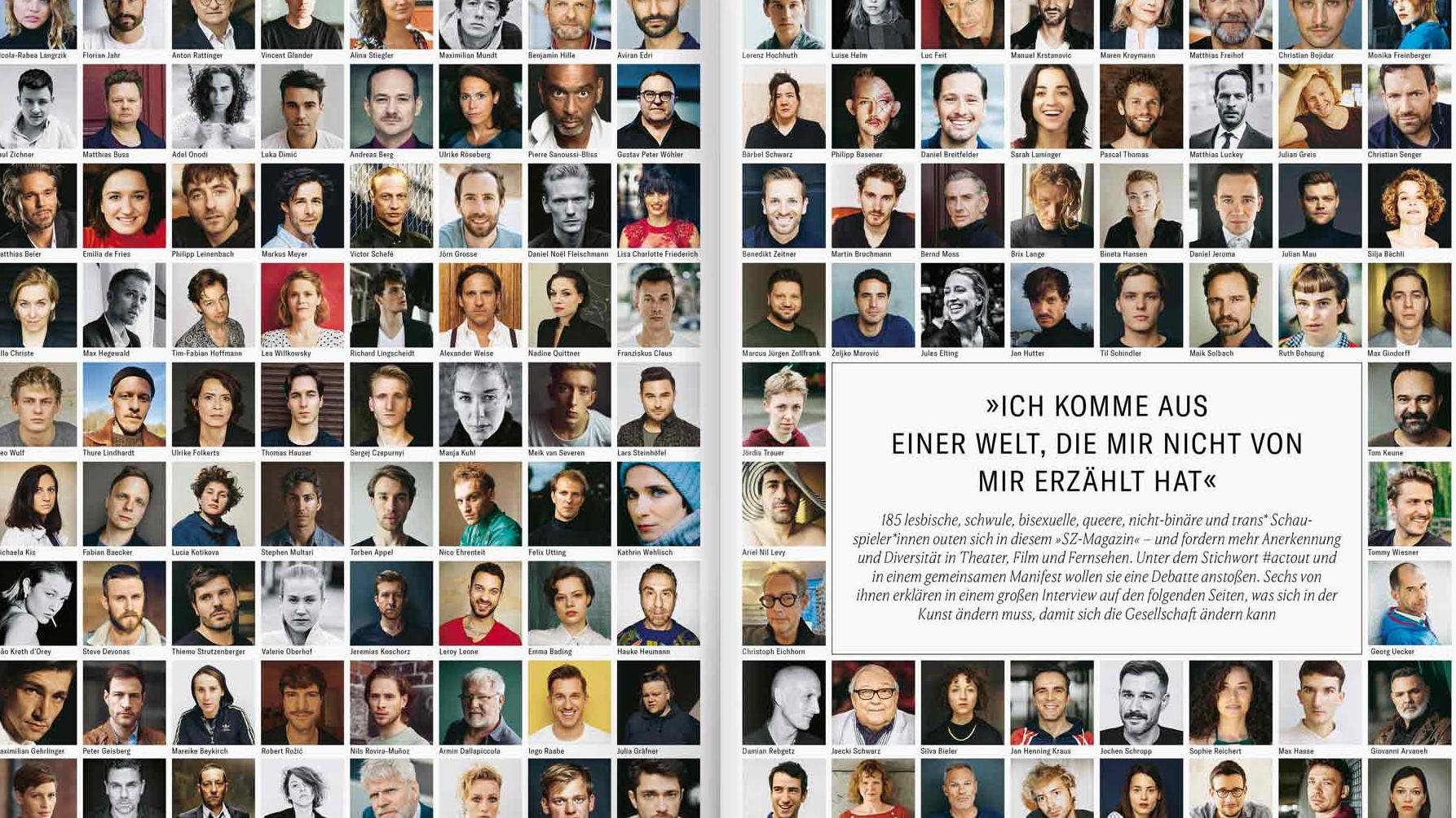On the front page of Süddeutsche Zeitung Magazin, one of Germany’s largest publications, 185 actors have come out as members of the LGBTQ community. The cover is filled with pictures and names of the actors, along with the message: “We are here.”
In a movement called #ActOut, actors are advocating for LGBTQ representation on-screen and behind-the-scenes in Germany’s media productions.
Actor Karin Hanczewski started planning the statement about a year and a half ago when she experienced LGBTQ erasure while at a film festival with her girlfriend. Before they hit the red carpet, Hanczewski’s agent told her it “would be better” to appear in pictures without her partner.
“People told us to be invisible. And, of course, this hurts,” Hanczewski said.
Related: Royal Spanish Academy dismisses movement to make Spanish more gender-inclusive
Hanczewski had spent years hearing similar acts of discrimination from fellow queer actors. She says she knows of casting agents who would threaten to refuse auditions for queer actors if they came out publicly.
Along with another queer actor, Hanczewski decided she would come out despite the risk of losing her career. She said they wanted to make structural changes in the media industry, and that coming out en masse was the only way to do it.
Related: Bars for queer and transgender women are disappearing worldwide. Will they survive the pandemic?
“To really change something — to really change structures — it was clear and obvious that we would need to gather a huge group of people.”
“To really change something — to really change structures — it was clear and obvious that we would need to gather a huge group of people,” Hanczewski said.
She started talking with other actors who were out in their personal lives — but not professionally.
Related: Thailand set to legalize LGBTQ unions, a rare step in Asia

Responses to the proposition ran the gamut. Some were supportive from the start. Others hesitated even after several discussions about it.
“There were people who said they wanted to be a part of it and then talk to us again and say, ‘No, I responded too quickly. I’m not there emotionally. I can’t do it.’”
Over the course of 18 months, the group gradually started to expand.
Actor João Kreth d’Orey heard about the movement through other actors. Kreth d’Orey was immediately excited but never expected it to attract so much attention. When the magazine cover and story came out on Feb. 5, Kreth d’Orey knew it was a historical moment.
Kreth d’Orey ran out the next day to buy the print edition, but copies had already flown off the shelves. Kreth d’Orey went to a supermarket and three other shops with no luck.
“And then someone on Instagram posted that they are all sold out. Tragic!” Kreth d’Orey added with a laugh.

Jules Elting is one of the lucky actors who was able to snag a print copy of the paper before it sold out.
Elting says coming out as nonbinary — a person whose gender is not strictly male or female— with such a large group felt momentous.
But like Kreth d’Orey, the significance didn’t hit Elting until they saw the front page of the South German newspaper.
“It was so emotional because I went, really, from picture to picture, and said hello and thank you to every person for their courage,” Elting said. “And acknowledging each life story, which is so different.”
The group includes people of all genders and sexual orientations. The 185 German actors have intersectional identities and belong to a range of generations. This diversity is key to its message — that there is no stereotypical lesbian or transgender person.
The paper also included the #ActOut manifesto.
“We are newcomers, household names, as well as those you may not have heard of yet,” the English translation of the manifesto reads. “We grew up in villages and big cities; we’re people of color, people with immigrant experiences and people with disabilities; we are not a homogenous group.”
The manifesto, translated online into more than 15 languages, speaks to common goals like including more LGBTQ characters on-screen.
“I have never seen a nonbinary character at all in German TV, or in German cinema. Like, we just don’t exist.”
“I have never seen a nonbinary character at all in German TV, or in German cinema. Like, we just don’t exist,” Elting said, adding that the idea of being able to play a character that could one day be a role model for others is beautiful.
Lamin Leroy Gibba, a Black, queer actor, wants the same thing. He says German media doesn’t mirror German streets.
“When you walk around, you see so many different people with different perspectives and different lives and different identities. … But it’s just not reflected in the media. I’ve never seen myself on German television, in German movies or on German stages.”
“When you walk around, you see so many different people with different perspectives and different lives and different identities,” Gibba said. “But it’s just not reflected in the media. I’ve never seen myself on German television, in German movies or on German stages.”
When Gibba says “never,” he really means it.
“LGBTQ [representation] just does not exist,” said professor Elizabeth Prommer, director of the Institute for Media Research at the University of Rostock.
She has studied thousands of roles on TV and in film, trying to figure out the percentage of gay and lesbian characters.
“We had so few nonheterosexual characters that I cannot give you a percentage. It was just a handful [out] of 11,000 characters.”
These abysmal statistics are no surprise to those in the industry.
Kai S. Pieck runs the Queer Media Society, an organization that promotes LGBTQ representation in German media. Pieck teamed up with Hanczewski to help organize the #ActOut movement. As a gay man in the industry, it’s a cause close to home. It was important for him to present #ActOut as serious news and not as a “spectacle.”
“It’s not about us — each person. It’s about the situation here, which has to stop. The act of telling an actor to not come out in public is discriminating.”
“It’s not about us — each person. It’s about the situation here, which has to stop. The act of telling an actor to not come out in public is discriminating.”
Pieck and other industry professionals said agents and media executives largely blame these discriminatory actions on German audiences. Pieck, also a director, said production companies have told him that queer content is a niche genre.
“We are facing people in their ivory castles judging what people want to see,” he said.
Hanczewski says #ActOut disproves that notion. She says she gets daily messages of gratitude from audiences who are “quite ready” for queer stories.
“They say that now that we did it, they can live a little bit more free now.”
Overall, the response to this mass coming out has been positive.
Along with selling out those newspaper stands, film institutions, TV networks and major theaters have said they stand in solidarity with the actors.
German actor Gibba is waiting for the follow-up.
“How are they going to make the industry that we are all in more inclusive, and more diverse, and equitable?”
Hanczewski admits there’s still some fear that she and her fellow actors will lose work. But putting that fear aside, she said, is empowering.
“How I feel now is incredible,” she said. “I really feel that I put this shame that is always put on me — I put it aside. Now, it can be the shame of someone else. It’s not my shame.”
#ActOut members know there’s a long road to equity and diversity on screen. But with a growing list of LGBTQ actors now visible, it’s a journey that many feel ready to take.
Our coverage reaches millions each week, but only a small fraction of listeners contribute to sustain our program. We still need 224 more people to donate $100 or $10/monthly to unlock our $67,000 match. Will you help us get there today?
